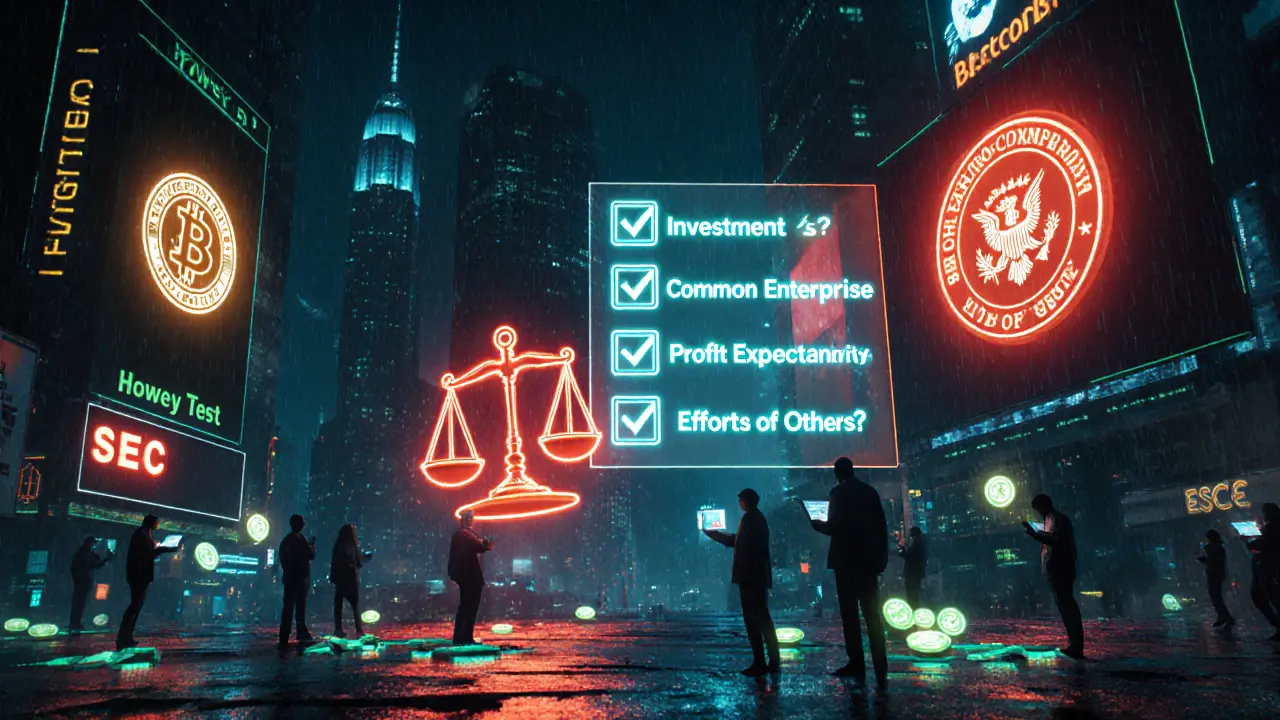The SEC's Howey Test determines if cryptocurrencies are securities. Learn how it works, which tokens are affected, and what it means for investors and developers in 2025.
Read MoreHowey Test Crypto: What It Means for Meme Coins and Token Sales
When the Howey Test, a legal standard used by the U.S. Securities and Exchange Commission to decide if something is an investment contract. Also known as the SEC investment test, it's the main reason why many crypto projects get shut down or forced to register as securities. If you’re buying a token hoping to profit from someone else’s work—like a team building a blockchain or marketing a coin—you’re likely buying a security under the Howey Test. This isn’t about whether the tech works. It’s about intent. Did you pay money expecting returns based on the efforts of others? If yes, the SEC says it’s a security, no matter if it’s called a coin, token, or meme.
The SEC, the U.S. government agency responsible for enforcing federal securities laws and regulating financial markets has used the Howey Test since 1946, but it’s become the go-to tool for cracking down on crypto scams. Projects like Gecko Inu, CPO Cryptopolis, and EVA Community didn’t get shut down because they had no code—they got shut down because they promised returns. Even if a token has zero utility, if people buy it thinking they’ll get rich from the team’s hype, the Howey Test applies. That’s why the investment contract, a legal term for any transaction where money is put into a venture with the expectation of profit from others’ efforts label sticks to so many meme coins and airdrops. The SEC doesn’t care if you call it a gift, a reward, or a community token. If there’s money involved and promises of future value, they’re watching.
Real crypto projects like V.SYSTEMS or AstroSwap avoid the Howey Test by making it clear: you’re not investing in their success—you’re using their product. Staking VSYS for transaction fees? That’s utility. Swapping ASTRO on a Cardano-based DEX? That’s participation. But if a team runs an airdrop and then pushes you to hold because "the price will pump," that’s a red flag. The crypto tokens, digital assets issued on blockchains that can represent ownership, access, or value that survive are the ones that don’t rely on hype—they rely on function. That’s why exchanges like Bitstamp and PancakeSwap stay legal: they don’t sell promises. They sell access.
You’ll find posts here that break down real cases—like why Iraq banned mining, how Malta lets you pay 0% tax legally, or why DINNGO and IGT-CRYPTO are scams. They all tie back to one thing: the Howey Test. If a crypto project can’t explain how you benefit without hoping someone else makes it valuable, it’s not a coin. It’s a gamble. And the SEC is ready to shut it down. Below, you’ll see exactly how this plays out in real projects—what gets flagged, what gets ignored, and what you should avoid at all costs.
